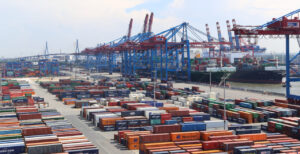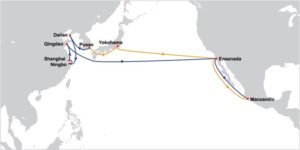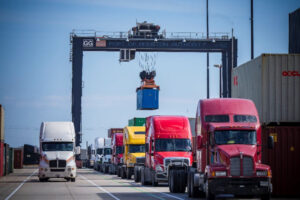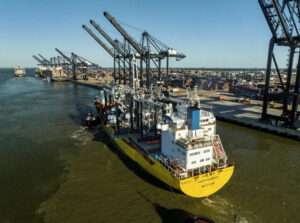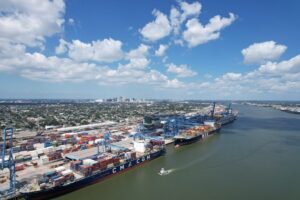Militant protestors have agreed with the Libyan central government to pull out of two eastern oil ports as a gesture of goodwill in order to continue talks for further shares in oil revenue.
Federalist rebels have agreed to return the ports of Zueitina and Hariga back to central governmental control as part of on going discussions.
Justice Minister Salah al-Marghani made the announcement on Sunday, saying that “the ports of Zueitina and Hariga will be handed over to the state with the signature of this agreement.”
He continued by stating that protestors were now “banned from returning or obstructing work at the ports.”
It is believed that the remaining ports of Es Sider and Ras Lanuf will be returned at some point in the next four weeks, following further discussion between the government and protestors.
The news comes shortly after talks began between the two factions in regards to settling a dispute which has cost the Libyan nation up to US$7 billion in loses and reduced the oil trade to a shadow of it’s former self.
Ibrahim Jathran and his men took over three of the eastern ports nearly eight months ago as an attempt to gain further autonomy and a larger slice of the revenue made from the production of oil.
Furthermore, Jathran’s party sought investigation to any corruption that could hinder fair distribution across the nation, particularly in the east, which has long since felt neglected, after the fall of the Gaddafi regime in 2011.
Protestors occupying the port of Ras Lanuf soon joined this plight, sympathetic to the militia’s cause.
According to the minister, a number of deals have been brokered between the two parties in order to peacefully return the two ports; including total exemption of any charges made against Jathran’s oil protection force and total re-imbursement of any salary payments neglected over the course of the protest.
A committee will be formed in order to investigate any financial and administrative corruption within the Libyan central government.
This committee is to be made up of a number of Libyan’s from different regions, in lieu with the demands made by rebel-appointed Prime Minister, Abd-Rabbo al-Barassi.
However, as of yet, there has been no mention of any greater shares in oil revenue being offered to the eastern region and it is expected that this will become a key point in ongoing discussions to return the two larger ports of Es Sider and Ras Lanuf to regular ownership.
During a televised broadcast on a rebel-controlled station, al-Barassi stated that “we will continue the dialogue and our efforts to completely gain Cyrenaica’s remaining rights.
“We won’t give up Cyrenaica’s rights whatever happens but when the government started a dialogue, we talked and thank God… we reached an agreement for the good.”
Whilst the ports of Zueitina and Hariga account for around 200,000 barrels per day (bpd), this is nothing compared to the 500,000 bpd that move through the larger two ports.
As such it is expected that these remaining ports will be used as key bargaining chips in order to gain further authority in the East.
The liberalist faction is seeking a return to the Idris form of governance before the Gaddafi regime, whereby oil revenues were distributed equally throughout the nation.
Nevertheless, a peaceful conclusion is something greater than the Libyan government could have possibly hoped for. With a young military still in training, it would have been unwise to combat Jathran’s men head-on, already battle-hardened after leading the assault against Gaddafi three years ago.
The talks continue.

